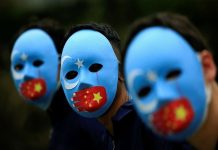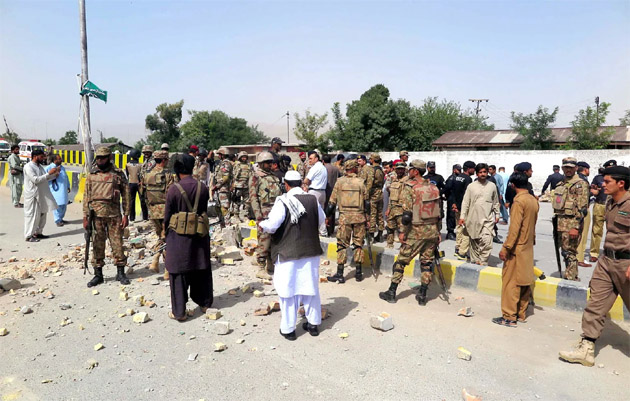Balochistan, a province in southwestern Pakistan, has been affected by various conflicts and allegations of human rights abuses. The problems encountered in Balochistan could be enumerated as under:
Enforced Disappearances: One of the most significant concerns in Balochistan is the issue of enforced disappearances. Numerous activists, journalists, and intellectuals have been reported missing, allegedly abducted by security forces or intelligence agencies. According to human rights organisations, such cases have been substantial.
Extrajudicial Killings: Reports have emerged of extrajudicial killings carried out by security forces in Balochistan. These incidents involve killing suspected militants or individuals associated with separatist movements. Human rights organisations have called for investigations into these cases to ensure accountability.
Torture and Arbitrary Detentions: There have been allegations of torture and arbitrary detentions in Balochistan. Both security forces and militant groups have been accused of subjecting individuals to torture during interrogations or custody. The conditions of detention facilities have also been a matter of concern.
Displacement of Civilians: The ongoing conflict in Balochistan has displaced a significant number of civilians. This displacement has resulted from military operations, clashes between security forces and armed groups, and attacks on civilian populations.
Limited Freedom of Expression: Balochistan has experienced restrictions on freedom of expression and press freedom. Journalists and media personnel face intimidation, harassment, and violence, which hampers their ability to report independently on the situation in the region.
The issue of human rights violations and alleged atrocities committed by the Pakistan Army in Balochistan is a contentious and elusive topic. Numerous human rights abuses have been reported, including extrajudicial killings, enforced disappearances, torture, and arbitrary arrests and detentions, allegedly committed by the Pakistani Army in Balochistan. Human rights organisations such as Amnesty International and Human Rights Watch have documented these abuses and called for accountability and justice.
However, the Pakistani political leadership and Pakistan Army have denied these allegations and have attributed the violence in Balochistan to foreign interference and support for separatist groups. The situation in Balochistan is complex, and multiple factors are at play, including political, economic, and social issues. It is also essential to respect the rights of all individuals and communities in the region and to ensure that any allegations of human rights abuses are thoroughly investigated and addressed following international law.
In 2022, it was alleged that Pakistan Army killed 195 and persuasively vanished 629 people in Balochistan, says Paank Annual Report 2022. This report further stated that the Counter-Terrorism Department and Frontier Corps working under the aegis of the Pakistan Army, subjected hundreds of Balochs, including innocent women and children, to enforced disappearance, collective punishment, killing in fake encounters and torture in various areas in Balochistan and Sindh.
Complete bans have been imposed on the Baloch Nationalist Parties, and only political parties pro-Pakaistan Army have been enjoying freedom. This has created a political vacuum both in Balochistan and Sindh.
The human rights situation in Balochistan is attributed to the long-drawn conflict between Baloch Nationalists (including Baloch National Army and other Freedom Fighters Groups) and the Pakistan Security Forces led by the Pakistan Army. As per the report published in The New York Times on 19 Jul 2018, the Pakistan deep state used Islamist Militants to attack Baloch nationalists.
It’s important to acknowledge that the information provided is based on reports and allegations, and verifying every claim independently is challenging. The situation in Balochistan is complex, involving multiple stakeholders, and there may be different perspectives on the issues mentioned above.
Background: Before joining Pakistan, Balochistan consisted of four princely states: Makran, Las Bela, Kharan and Kalat. Except for Kalat, all other princely states joined Pakistan willingly in 1947. (Hasrat, Sayed F, 2011, Global Security Watch, Pakistan Ist Edition, Praeger, p-78). Kalat aspired for independence under the leadership of Khan of Kalat, Ahmed Yaar Khan. Mohd Ali Jinnah persuaded Ahmed Yaar Khan to join Pakistan; finally, Khan of Kalat joined Pakistan on 27 Mar 1948. (Express Tribune, Pakistan 26 May 2013). However, Prince Kareem Khan, the brother of Ahmed Yaar Khan, decided to remain independent and fled to Afghanistan and continued his struggle for independence but failed. Finally, in June 1948, Kalat was fully integrated into Pakistan. (RSN Singh, 2009, The Military Factor in Pakistan, Lancer, Delhi, P-191). Since 1948, the aspirations of the people of Balochistan arose in 1958-59, 1962-63, 1973-77, and 5th and present nationalist movements started in 2002. ( Rashid Ahmed, Descent into chaos: How war against Islamic Extremism is lost in Pakistan, Afghanistan and Central Asian Region, Allen Lane, 2008, P-36).
In 1958-59, the conflict was caused by the Pakistani government’s imposition of the one-unit plan, which the people of Balochistan vehemently opposed. Nuroz Khan led this movement from the front and clarified his intention of secession to Pakistan authorities. But a day later, of this uprising, the government of Pakistan declared martial law. ( Dan Slater, Order Power: Contentious Politics and Authoritarian Laviattghans in Southeast Asia-Ist Edition, Cambridge University Press, 2010, P-283). The Pakistan Army mercilessly bombed the area and deployed tanks and artillery was used. Nuroz Khan was arrested and hanged along with their other relatives. Pro-independence feelings among the populace of Balochistan were further aggravated due to the high-handedness of the Pakistani government.
The area is affluent in natural resources such as natural gas, oil, coal, copper, sulfur, fluoride, and gold. It is the largest area but least populated and least developed. Now people demand greater control of these natural resources and political autonomy. However, their aspirations are curbed, and Pakistan Army has committed many atrocities on the populace of Balochistan. Atrocities committed by Pakistan have been narrated and projected by various agencies.
Balochistan is like a goldmine for Pakistan with its immense natural resources and other minerals. It has strategic significance for Pakistan, providing direct access to the Indian Ocean region. It is an entrance to the Strait of Hormuz from where most shipping lanes pass. Balochistan is very rich in resources, but its people live below the poverty line due the exploitation by the Pakistani authorities. And when people demand their fundamental rights, they are pushed against the wall.(Manish Rai, Orgniser, 31Jan, 2023).
The ongoing nationalist movement in Balochistan got international recognition in 2012 when the US Congress convened a hearing on Balochistan and got support for free Baloch land. In 2016, the Hon’ble Prime Minister Narendra Modi made mention of the ongoing struggle for independence in Balochistan in his address to the nation. (Civildaily, 13 Aug 2022.)
Conclusion: The issue of extrajudicial incarceration, killings and disappearances is not new in Pakistan but is deep-rooted in history. The situation in Balochistan might not only threaten the domestic peace and stability of the nation but also disturb the peace and tranquillity in the neighbourhood.
Baloch enjoyed a semi-autonomous status even before the creation of Pakistan in 1947. The region is proud of its languages and cultures. The Balochi ethnicity has footprints in many Pakistan, Afghanistan and Iran areas.
Since the 1950s, the Balochi people in Pakistan have been raising their voices for the independence of Balochistan. However, with time’s passage, this demand has been diluted to more autonomy, economic freedom and protection of fundamental rights.
Pakistan Army has proved its efficiency in destroying Balochi’s social fabric, but it utterly failed to impose its writ in the province. It has exacerbated the ethnic tension in the region. Baloch political leaders, human rights activists, lawyers, journalists, and student leaders are targeted for enforced disappearance, abduction, arrests, torture and other ill-treatment.

































